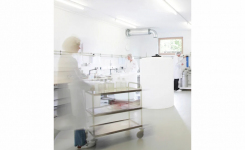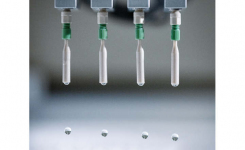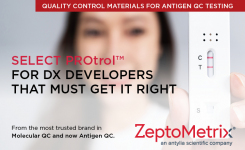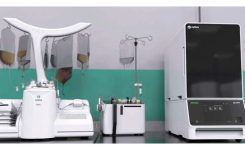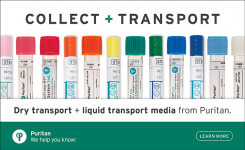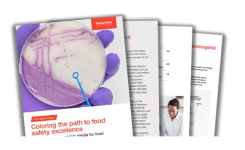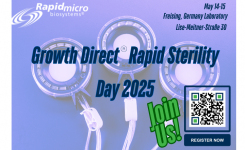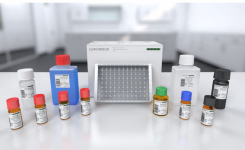Key Points:
- SARS-CoV-2 and SARS-CoV-1 (2002) both use the same cell surface receptor ACE-2 (Angiotensin-Converting Enzyme) to gain entry into host cell
- For the 'Viral Spike (S) Protein' to bind to ACE-2 it needs to be primed by cellular serine protease TMPRSS2.
Introduction: The COVID-19 pandemic put the in-vitro diagnostics industry under the spotlight. Not just the accuracy and quality of the tests were under scrutiny but also the supply chain of its reagents.
For example, some COVID-19 test kits released to the market with CE-IVD certification showed much lower accuracy than promised by the manufacturer. This scenario exposed weaknesses in quality control and transparency under the Directive 98/79/EC, that aim to be ironed out with new IVDR Regulations due in 2022. Similar problems were found with antibody tests authorized for sale by the US FDA, where licences were revoked once laboratories reported issues with validation.
Also, a shortage of reagents and swabs to perform molecular testing was commonplace in countries who relied on importing these components; causing huge backlogs in testing regimes and prolonged lockdowns.
Despite these inherent problems with a pandemic, the science community and governments are overcoming these issues by investing a lot of time and money into developing low-cost high-throughput test kits. At the same time, ongoing work into a safe vaccine shows progress.
This test method guide enables COVID-19 kit manufacturers, developers and vaccine researchers to source, from companies listed in the suppliers' tables, all the necessary supplies to aid their work.
Criteria for COVID-19 Diagnostics: The World Health Organization (WHO) is publishing Draft Target Product Profiles (TPP) for priority COVID-19 diagnostics. These TPPs describe the desirable and minimally acceptable profiles. Find out more here
The US FDA has published templates for diagnostic kit manufacturers seeking FDA Emergency Use Authorization. Click here
Molecular components in COVID-19 qPCR assays: In the early days of the COVID-19 testing regime, there were only qPCR tests on the market, which led to a shortage of reagents. Reagents/Enzymes in viral RNA extraction or amplification, i.e. Taq polymerase were scarce, resulting in bidding wars between countries. Governments are looking to buy everything from one supplier, and life science companies are expanding on what they offer. However, as a test kit manufacturer, you will need to find components that suit your assay project, which may not all come from the same supplier. Use this test method guide to obtain quotes and information from these providers.
Complete Tool-Kit for COVID-19 Antigen Test: There are two main antigens for SARS-CoV-2; the spike protein and the nucleocapsid protein. The nucleocapsid protein is conserved and abundant on the virus and has become the preferred target in antigen tests. You need antibody pairs for capture and detect which bind to these targets with high sensitivity and specificity. So far, only Quidel and Becton Dickonson have received FDA-EUA for COVID-19 antigen tests.
However, antigen kits may not be able to differentiate between other coronaviruses. Therefore cross-reactivity of your kit's monoclonal antibodies with other coronaviruses will need to be identified using N and S proteins, as well as providing a reliable negative control for the operator.
These kits are typically used to triage patients in hotspot areas and so have a high limit of detection (LoD). Therefore as a manufacturer, you will also need to find a nasopharyngeal swab supplier to include it in your test kit.
COVID-19 Antibody Test Development: Whether it's an ELISA or lateral flow test, you will need to choose which of SARS-CoV-2's antigens is appropriate for your test. For example, it has been said that the best antigen for neutralizing antibodies (IgG) is the Receptor Binding Domain (RBD). These recombinant antigens are produced from a variety of cell lines, which include both prokaryote and eukaryote.
There is also the issue of cross-reactivity due to other coronaviruses in circulation. These can also bind to epitopes of SARS-CoV-2 and cause false positives, but can't provide immunity to SARS-CoV-2. Antibodies can also generate false-positives that the body is producing due to autoimmune disorders like arthritis. Both these non-SARS-CoV and autoimmune antibodies have low to medium affinity for SARS-CoV-2 but can cause interference. There is technology available that can ensure only high-affinity binding is possible to prevent these false-positives.
Binding Affinity Assays for COVID-19 Research Binding affinity assays used in COVID-19 research aims to characterize the binding affinity of SARS-CoV-2 proteins and the Angiotensin I Converting Enzyme (ACE2) receptor complex in the presence of potential inhibitors i.e. antibodies. These coronavirus proteins include Spike 1, RBD1 and SARS-CoV-2 S (SARS1). These assays allow evaluation and screening of inhibitors, characterize antibody function, assist vaccine development and are used in the selection of patient serum for antibody therapy. (see 'Binding Affinity Assay' table below for list of suppliers.)
COVID-19 Vaccine/Therapy Development: The suppliers' tables (below) for 'COVID-19 Vaccine/Therapy Development' include a comprehensive list of products which include, but not limited to: investigating SARS-CoV-2 life-cycle, products for Mesenchymal Stem Cells (MSCs) and Organoid Research and tools to support new coronavirus research.
Contract COVID-19 Assay Development: A typical wait time for 'turnkey' antibody assay development that includes assay validation and manufacturing is 14 months. However, assay developers also offer bespoke services, i.e. initial feasibility analysis and development packages, to suit your budget.
New requirements in ISO 14155 standard for Medical Device Clinical Investigations:This was recently updated in July 2020 to make the standard comply with other international standards i.e. and to place a stronger emphasis on the role of clinical evidence. ICH-GCP. Click here for summary






